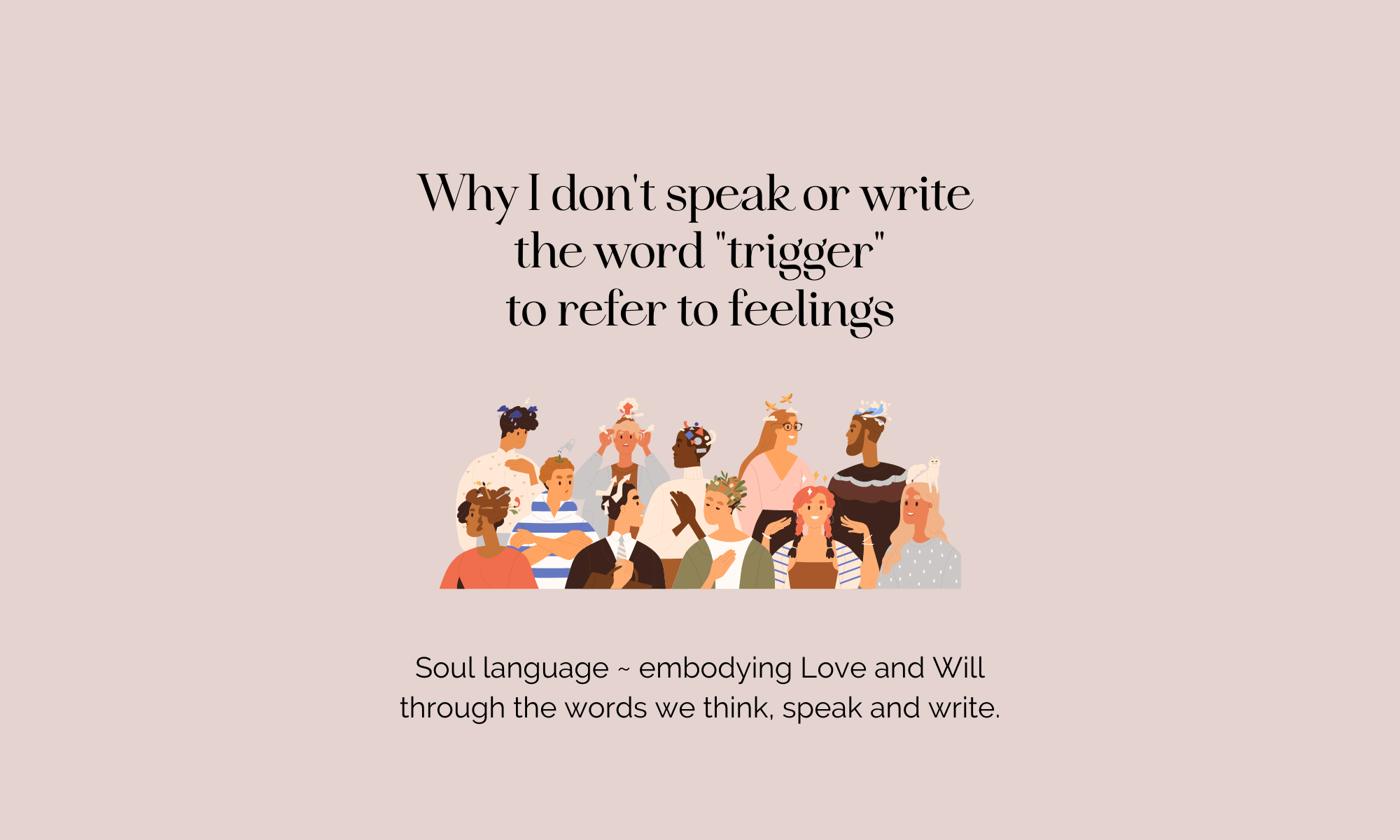This is the first of a series of articles about how language perpetuates Disconnected Domination Culture (DDC) conditioning. This is based on The Marion Method and is not Aware Parenting.
Language is a core part of The Marion Method, because the language we think, speak and write profoundly affects the extent to which we are speaking from our Soul rather than our conditioning, which influences how loving and powerful we feel.
Core to The Marion Method is compassion (Love) and choice (Will).
So, I deeply accept each person’s choice of words, and I have no interest in judging or coercing anyone’s language use.
(That would be DDC conditioning).
If you love the word “trigger” to refer to feelings, I so support you in using it.
I understand that the word can be a helpful shorthand for describing big feelings that arise in response to something happening, often from the past.
There are a couple of reasons why I choose not to speak or write the word “trigger” in this way:
1. The etymology of the word and how I feel when I say the word
2. Choosing words that help us connect with our compassion and power (Love and Will)
1. The etymology of the word and how I feel when I say “triggered”:
The noun “trigger” appeared in 1621.
It was specifically used to refer to guns.
The word ‘trigger’ used as a verb to describe setting off a chain of events was first used in the 1930s.
I believe that the original meaning of a word has an energetic imprint on the word which can affect us when we speak it.
I’m curious if “trigger” was chosen to match the DDC’s judgment of feelings and the DDC belief that feelings are dangerous and scary.
If I say “I’m triggered”, some part of my consciousness thinks of a gun, and this is likely to stimulate some fear.
I’m not willing to perceive my feelings as dangerous or to add a sense of danger to my feelings.
I am willing to welcome my feelings with a sense of presence, gentleness and compassion, and I love language that supports me in being most likely to be able to do that.
2. Connecting with our compassion and power:
I wonder whether the word “trigger” can accentuate a sense of us not having any choice about feeling these feelings.
Whilst it’s important to acknowledge that our reactions can be automatic, I believe that there are other words that will help us have MORE presence, power and choice in response to our big feelings.
I believe that DDC infiltrates conscious communities, just like a Trojan horse.
It aims to look helpful and friendly – “Here! Look! Here is a word we can use to say that we are feeling some feelings in response to something!”
But in reality, it can surreptitiously bring in a belief that feelings are scary and dangerous, and that we are less powerful than we really are.
Hey presto! We buy into the word, yet the DDC can stimulate more fear and powerlessness and less loving compassion for the beauty of feelings.
I love finding much more compassionate, supportive and honouring ways of thinking about, talking about and being with feelings which help us feel more present and powerful in our bodies when feelings from the past emerge.
What do I say instead?
Instead of, “I feel triggered,” I might say the actual feeling I’m feeling, eg. “I feel frustrated.”
If I’m wanting to communicate to the other person that I’m aware that these feelings are from the past, I might say, “That’s helping me connect with feelings from the past.”
I know that it isn’t as brief a shorthand as “triggered”! Some people say “activated” or that feelings were “stimulated” or “palpated.”
